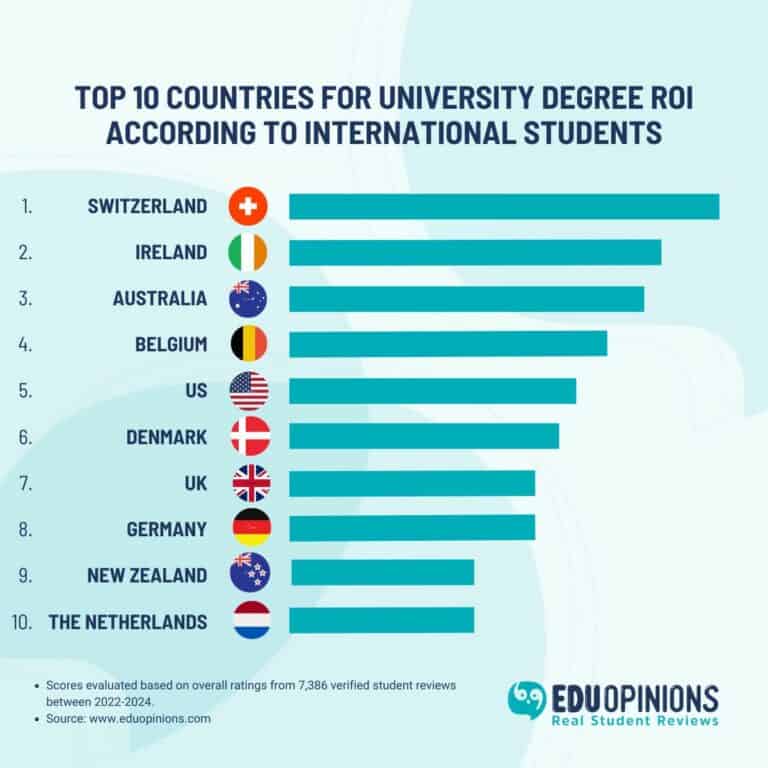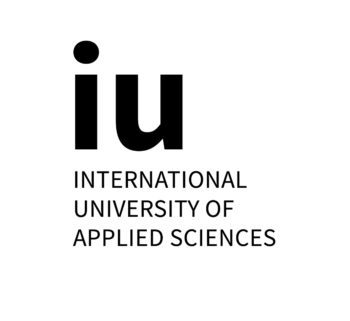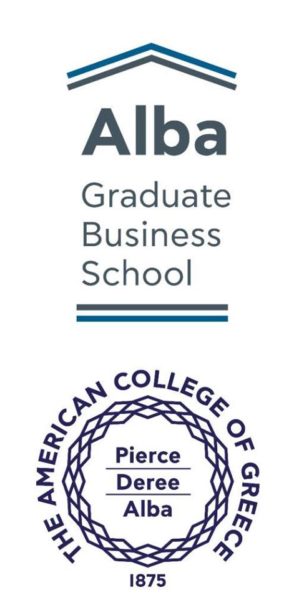Studying abroad for a semester or a full year can be an incredibly enriching experience. You’ll get to experience a new culture, meet new people, and explore a new place. But all of that doesn’t come cheap. According to one study, the average cost of studying abroad for two semesters (an average academic year) can total over €30,000. So, how can you study abroad for cheap?
Thankfully, there are lots of options if you don’t think you can afford the full cost of studying abroad. Choose your destination and programme wisely, and you could save lots of money.
How to Study Abroad for Cheap
1. Opt For a Semester Abroad Instead of a Year

A semester abroad is sometimes offered by university courses. Instead of taking an entire year abroad, you’ll study similar modules that you would at your home university, but at a partner institution. However, on a semester abroad, you won’t have to pay any tuition fees to your exchange university, with these fees being included in your studies.
For a semester abroad, depending on your destination, you’ll still have to factor in the cost of your visa application. Likewise, you’ll have to account for rent, food, and travel, but these costs will be considerably cheaper than studying for an entire year in a different country.
2. Choose a Visa-Free Destination

As we’ve mentioned, getting a visa can represent a significant financial barrier to studying abroad. While EU students won’t have to worry about visas if they want to study in another EU country, if you’re from the UK or an international student thinking of coming to Europe, a visa will require some additional planning. Likewise, EU students wishing to go to the US, Asia, or Australia will have to apply for a visa.
In some cases, a visa application will ask for proof that you have enough money to support yourself during your stay. So, you’ll have to show proof of income, savings, or a scholarship to cover the total amount. For example, students wishing to head to Australia have to prove that they have at least €8,000 to cover their living costs, not including tuition fees.
Consequently, if you want to study abroad for cheap, choosing a destination that has no visa requirements can make it more affordable.
3. Consider a More Affordable Country

If you want to study abroad in the world’s top cities – whether for a semester or a full academic programme – it’s going to be pricey. Destinations like London, New York, Seoul, or Singapore may be bucket-list places for international students, but they’re also expensive.
To make your study abroad experience cheaper, consider choosing a more affordable city. In many cases, you can still study at a top-ranked university, just in a city that has a cheaper cost of living. For example, Portugal has a rigorous education system, with many top-ranked universities, but choosing Porto over Lisbon can reduce your living expenses by 17%.
You can also take advantage of favourable exchange rates by choosing a country that has a different currency to your home country. While somewhere like Canada or Singapore may be expensive for EU students, opting for a university in Hungary or Poland can make tuition fees and living costs a lot more affordable.
4. Look For Scholarship Opportunities

If you don’t think you’ll be able to afford to study abroad, there are lots of organisations that can help you out.
If you’re a UK student and want to go abroad for a semester, consider the new Turing scheme, which replaces the Erasmus+ scheme. English students can also get help with their study abroad fees through a travel grant.
EU students can benefit from grants and scholarships from Erasmus+ to travel during your Bachelor’s and Master’s studies, if you’re already studying at an EU institution.
If you want to study elsewhere in the world, there are lots of scholarships available. It may take time to find the right one for your programme type and destination, but it’s worth having a good look, as financial help is available.
Finally, always look at the website for your institution, as they may be able to help international students with the cost of doing a Bachelor’s or Master’s.
5. Think About Working Part-Time

Once you’ve got to your destination, you might realise that it’s more expensive than you realised. All those coffee dates with your international peers add up! But you may be able to work while studying abroad, allowing you to top up your budget.
It’s important to check your eligibility to work if you applied for a visa to study abroad. Your visa may not
For example, international students in Australia may work up to 48 hours every two weeks during term time, with no limits to working during academic holidays.
You might also have to take into account language barriers if you want to work abroad. Some countries, like the Netherlands, have strong English fluency, and you may be able to get by in a part-time job just speaking English. However, in other countries, particularly those in Asia, partial fluency in the host country’s language will be required.
For example, international students in Korea may work up to 25 hours a week during their studies, but they must pass a required Korean language exam.
Conclusion
If you’re thinking about studying abroad, then the cost is probably going to be your number one concern. However, there are lots of ways you can make your study abroad experience cheaper – so you can worry less about money and spend more time soaking up the experience.
If you need to get financial help to study abroad, it’s important to start planning early. Figure out a budget, and then make a plan to research scholarships or grant opportunities that you’re eligible for.
Now that you’re ready to apply to a study abroad programme, don’t forget to read our article on 6 Mistakes Students Make in the Enrolment Process for International Universities.
Related Posts :
Recent Posts

Blended learning (sometimes called hybrid learning) has become significantly more popular over the last few years. In fact, today, 45% of students in ...

The Netherlands has it all when it comes to studying abroad: vibrant cities, beaches, affordable public transport, and an exciting, multicultural ...

The moment you transfer the first tuition fee payment to your university, you'll be thinking of how you can recoup that investment. This is ...







